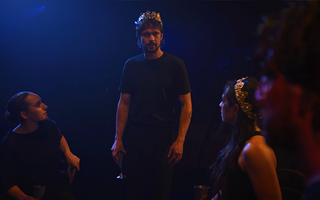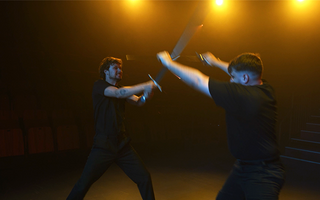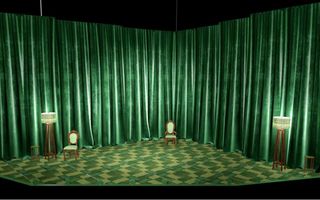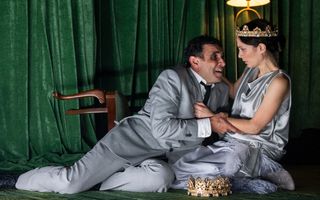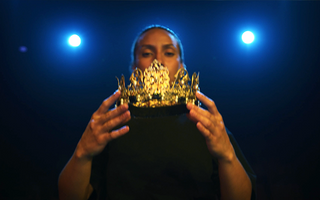 Watch
Watch
Who is to blame?
One of the most popular points of contention about the play is the question ‘Who is to blame?’ The three main arguments usually involve Macbeth, Lady Macbeth or the Weird Sisters as key instigators for the events of the play. Some argue that the Weird Sisters put the idea of becoming King of Scotland into Macbeth’s mind, while others insist that it is Lady Macbeth’s sheer power of persuasion that leads Macbeth to commit to the murder of King Duncan. While there is no definitive answer, these theories appear to ignore Macbeth’s internal desires and personal responsibility for his actions and subsequent consequences. He might have received information and had suggestion put upon him, but one could argue that he is the one who chose to act. He does, after all, tell us in Act 1, Scene 4 that he has “black and deep desires…”
Did Macbeth and Lady Macbeth have a child that died?
In the play, Lady Macbeth tells us that she “has given suck” (Act 1, Scene 7) and speaks of a baby she once nursed, appearing to be a point of grief between the couple, though this is not explored further. It is however unclear whether this was her own child, or a shared child of hers and Macbeth. We do know from history that the real Lady Macbeth (Queen Gruoch) had a child by her first husband, which is perhaps what Shakespeare is referring to. Whatever the reason, the Macbeth’s lack of an heir is referred to throughout the play and a source of frustration for Macbeth.
Is Lady Macbeth a ‘villain’?
Another common topic for debate surrounds the idea that Lady Macbeth is in fact the ‘villain’ of the play, rather than her murderous husband. While Lady Macbeth does not directly harm anyone in the play, many point to her summoning of spirits and urging of Macbeth to commit dark deeds as an indication of ‘evilness.’ She even goes as far to insist to Macbeth that she would rather harm her own baby than turn her back on their ambitions. While there is no question that Lady Macbeth’s actions are hardly saint-like, the argument must take into account her own standing as a woman in a patriarchal society, with little to no agency of her own. What can be perceived as an evil hunger for power, can also be viewed as a woman driving her husband onto political success using the means she has.
What happens next?
There are several loose plot ends in the play which have led people to speculate what might happen next. For example, Banquo’s son Fleance escapes the murderers yet is never heard of again. Remember, the Weird Sisters prophesied that he or his children would one day be king. We are also left to speculate on the rule of Malcolm, the new King of Scotland, and whether he would follow in his father’s or Macbeth’s footsteps.
